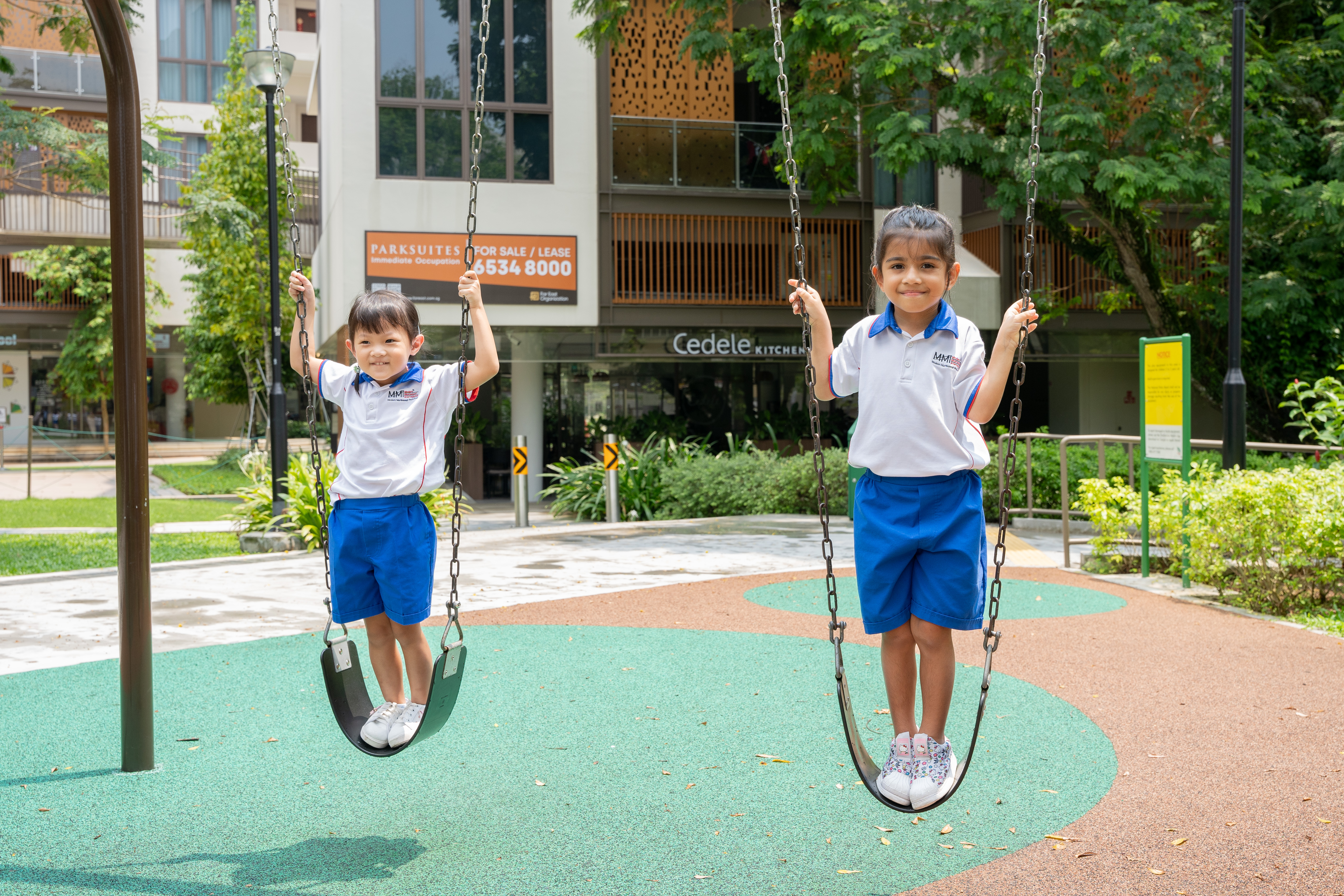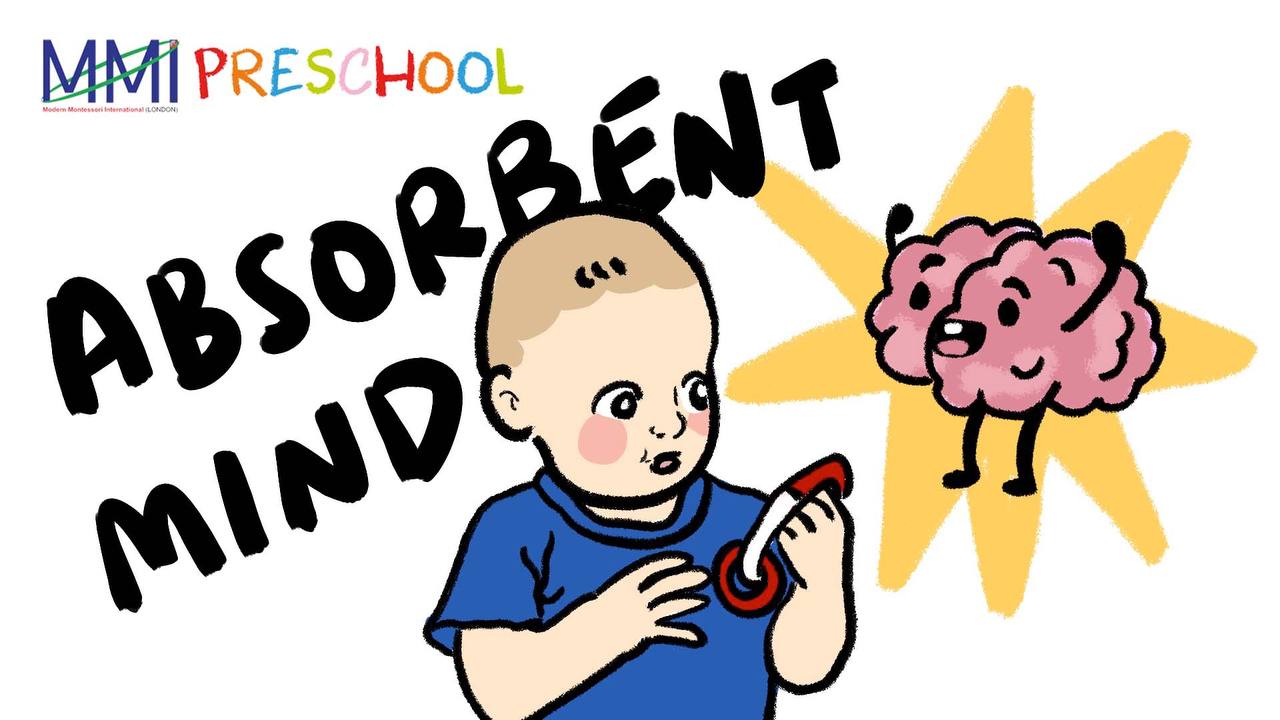“When a particular sensitiveness is aroused in a child, it is like a light that shines on some objects but not others, making of them his whole world” – Maria Montessori
Maria Montessori once said that children go through definite periods in which they uncover psychic aptitudes and conceivable outcomes which afterwards disappear. Children experience various phases of delicate periods all through their early years at specific times from birth and six years old (to age six).
Sensitive periods are developmental windows of opportunity during which a child can learn specific concepts or skills more easily, naturally, and effortlessly than at any other time in their lives. Once the window has closed, the same information must be learned arduously, through repetition and memorization.
Let’s discover and find out more about the 6 Different Sensitive Periods
- Sensitivity to order
During this time, children are working towards figuring out their general surroundings. In an environment where order exists, a child can sort his impressions of the world easily. This requirement for order is evident in children from the age of 1 year to 2.5 years. This is portrayed by his longing for consistency and reiteration. The need for order is integral for all humans, as it gives security and empowers children to perceive and piece together all impressions of the environment and to interpret them with sense and logic.
How can parents maintain order at home?
• Have clear and well-defined operating procedures.
• Be predictable with the ground rules that have been setup.
• Established day-by-day schedules which are easy to follow. Routine creates order and expectations. reduced anxiety for children.
- Learning through their five senses
Your child has a natural interest in sensorial stimulation and a curiosity about investigating the surroundings around them. These senses happen from birth and develop till the age of six. He learns through his five senses. Sensorial experiences are important at this age as children gather data through different senses through their senses; sight, touch, taste, smell, and smell.
To learn, a child must see, hear, touch, smell, and taste. The children should have objects to explore and manipulate with their hands to foster their brains’ abilities to see, think, and characterize impressions within their environment.
How can parents encourage children to learn through their senses at home?
• Provide your children with the freedom to investigate and explore their current environment using their senses.
• Use Montessori materials to assist with refining their senses.
• Help them to group and classify information from their environment – to sort things and put them in context, just as they recognize the connections between
things.
• Involved children in food preparation, whether for breakfast, lunch, dinner, or supper.
• Involve children in family tasks like cleaning, washing, and ironing that you do at home.
- Sensitivity to small, minute objects
Small objects, such as insects or pebbles, draw the child’s attention in a any environment. You might even notice that sometimes they would pick it up and try to put it in their mouth! Young children at this stage experience an urge to pay close attention to minute details as they are trying to build their own understanding of the world. This development of sensitivity to small objects usually begins between the ages of 1 year and 4 years. It helps to broaden the child’s perception, foster concentration, develop eye-hand coordination, and fine motor skills.
Parents are concerned and sometimes stressed over the possibility of choking hazards when children are working with small objects. Therefore, it is important to closely supervise young children instead of denying them the opportunity to satisfy this need. Being up close to the small objects, the child learns to tune into details, to observe the features and eventually develop concentration and satisfaction. Try rock collecting. It is fun.
To help your child during this sensitive period, you can:
• Provide small objects for them to explore.
• Take children to a garden and give them space to explore. They will be drawn to the discovery of stones, ants, insects etc.
• Take your child for a nature walk and allow him the freedom to explore the environment.
- Sensitivity to Movement
The sensitivity of movement begins from 2.5 to 4.5 years of age. The coordination of movement brings the body under the control of the child’s will. This is an important skill a child needs to learn in their early stages of life. The refinement of movement involves both gross and fine motor development skills. The children’s movement can be divided into two phases. An infant child from birth to 2.5 years old can crawl, pull up, and eventually walk without assistance. The child has an involuntary inclination to practice movement repeatedly to develop and perfect the skill!
The next phase is from 2.5 to 4.5 years old. The child, in time, will learn how to hold items, develop the pincer grip, and coordinate movement. As he grows, the child gradually develops and strengthens his own self-motivated motor refinement, coordination, and control.
To help your child during this sensitive period, you can:
• Provide exercises that include fine motor skills like drawing, composing and washing hands.
• Provide exercises that develop large muscles, like hopping, running, and jumping.
• Involve your child in games that utilize the entire body.
• Stroll or run in the park
- Sensitivity to language
From age 0 to 6, children are in the most sensitive period for learning languages. Children are sensitive to three types of language, namely:
• Spoken language (0 to 6 years)
• Written language (3.5 to 4.5 years old) in addition
• Reading (4.5 to 5.5 years old)
During this sensitivity period, the child learns spoken language without any conscious effort. As an infant, the child will begin to imitate the speaking sounds he hears. The child is drawn to repeating human sounds and does not copy every one of the sounds in the environment. This shows that babies possess sensitivity towards human language! As the child gets older, he will develop a sensitivity towards the other aspects of language as well, such as letter shapes and sounds, writing and reading.
To help your child’s language development at home, you can:
• Provide your child with a rich language environment.
• Read to your children.
• Have a conversion with your children every day
• Name the objects in their environment.
• Do not use gibberish (no baby talk!)
• Use the specific names of things
- Sensitivity to social interest
At this stage, children give extraordinary consideration to different children of their own age. They start to foster friendships and participate in group play. During this period, children are attracted and affected by what they discover and interact within the environment. Children tend to model their conduct and behaviours around adults and gradually acquire the social norms of the group. This is an incredible chance to guide and show your children basic forms of manners and courtesies, character building by displaying that positive conduct before them.
To encourage your child’s social development at home
• Introduce illustrations of basic manners, like greetings, etc.
• Be consistent and predictable.
• Set a good example for others to follow.
• Pay attention when your child is talking.
• Give your children the freedom to play with different children.
• Say positive things.
• Gently and reliably assist your children with managing their behavior.
• Be patient and receptive to questions.
Knowledge of sensitive periods is a vital tool for any parent, as it helps us to plan ahead of time and ensure that the child has what they need to grow. The key message is to accept the cyclical nature of individual growth that continues throughout children’s lives and respect our children’s developmental requirements and sensitivities.








Leave A Comment